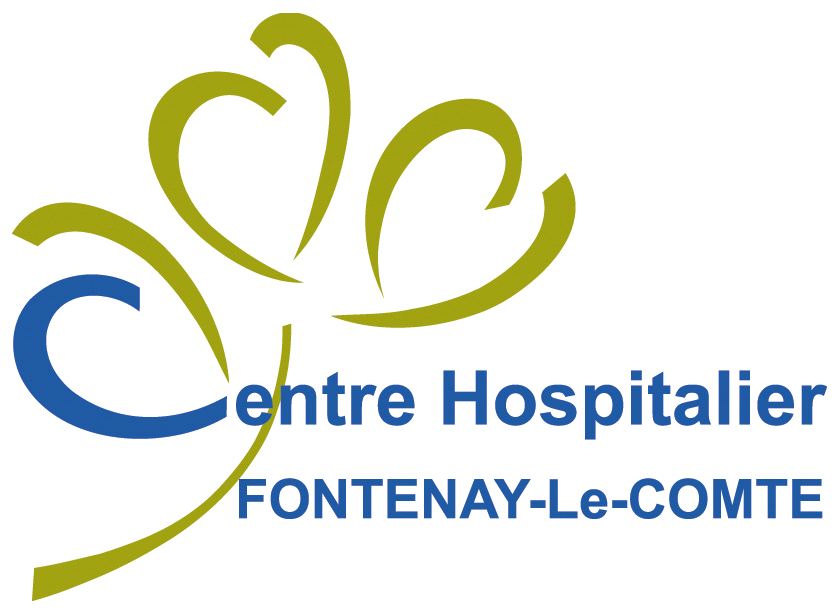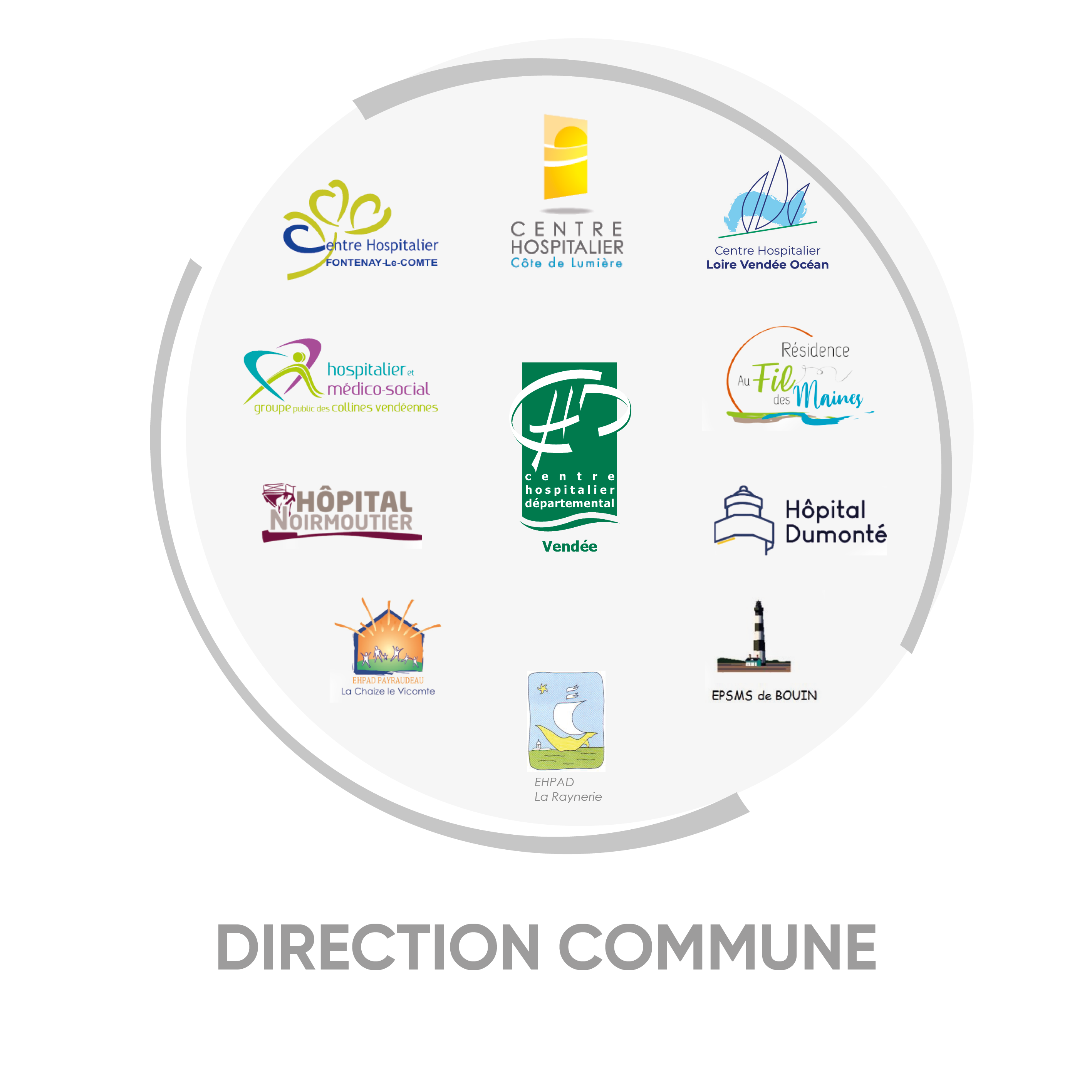Page anglaise - CH-Fontenay
Fontenay Le Comte Hospital
All of us here at the Fontenay le Comte Hospital would like to wish you a very pleasant stay and a speedy recovery.
Please, go directly to the accident and emergency ward and explain the problem to a nurse. The injured person will be taken in charge for medical care. Most doctors and nurses speak English, so they will do their best to give you all the information you may need. Fill out the form given by nurse and supply all the papers requested :
- medical insurance European
- travel and private insurance policy
If you need help for translation you can ask for an interpreter.
In order to be admitted to the hospital you will need to present the following documents :
- proof of identity (an identity card or passport)
- an insurance card (European Social Security Card or an E111 form)
- comprehensive insurance information including insurance cards or pre-authorization papers to verify coverage and guarantee payment
You will have to pay for your hospital stay if you do not have the above documents, if you do not have medical insurance or if your insurance company requires a reimbursable payment.
The admissions office is open during the following hours to assist you in making special payment arrangements, if necessary:
Monday to Friday from 8 am to 6 pm
Saturday from 8 am to 4 pm
Telephone : 02-51-53-30-21 or 02-51-53-20-20
Telephone
There is a private phone in each room in order to receive calls. If you would like to phone outside the hospital, you will be required to pay a fee to the hospital's telephone operator who will give you a special number which you can use for family and friends.
Television
Televisions are available to rent. For security reasons the hospital does not permit patients to use their own televisions. If you watch television, please respect your room-mate's need to rest.
A mail service is available from Monday to Friday. The mail deliverer can send your letters if they are correctly stamped.
Valuables and personal items
Fontenay le Comte hospital is not responsible for lost or stolen items.
Please do not bring valuables or large sums of money into hospital. However if necessary it is possible, for a fee, to deposit valuables in the safe. For this service please speak to the person in charge on your floor.
Church services
Religious councellors from several denominations can visit you. Please ask staff about this.
Visitors
A support team of volunteers can pay you a visit during your stay if you wish.
Moving about within the hospital
You are free to leave your room except where this is inadvisable for medical reasons. Please inform a member of staff.
Special permission to leave the hospital
This authorization must be requested in advance from the doctor in charge of your ward. If your doctor advises you to stay, we will ask you to sign a paper which absolves us of any responsibility for any consequences resulting from an early discharge.
Family and visits
Your family is welcome to visit you during visiting hours. As each ward is independent, the visiting hours will be indicated to you as soon as you are able to receive visits. Please ask the medical team if children are allowed to visit without risk of contagion. Please avoid group visits which can be tiring.
If you wish to remain anonymous you can request that no information be given to outsiders concerning your presence in the hospital or your state of health. Please inform the medical staff as soon as possible if this is the case.
If you wish the presence of a family member on a permanent basis, the medical team can arrange a bed and meals for them in your room if space permits and if your medical team agrees. You can pay for this service in the admissions office.
Your doctor will fix the time of your departure and inform your general practitioner. Upon leaving, he will give you a prescription for your medication accompanied by a letter to your general practitioner indicating your general state of health and prescribed treatment.
When you are discharged please go to the admissions office to complete your paperwork. You will be given an official discharge document to send to your insurance company.
These administrative papers will cover the following hospital charges :
- in-patient hospital stay : general charges, medicines, blood products, doctor's fees, laboratory analyses, x-rays, etc. If you are covered by national insurance the majority of this charge will be covered. The part which is not covered is called the "ticket modérateur" and this will be billed to you if you have no private insurance or if you are not exempted for any particular reason.
- Room charge : you need to pay for it upon discharge
- Private room supplement : this is never covered by general social security health insurance even if you have 100% cover. It can sometimes be reimbursed by your private health insurance.
- Transportation : you must arrange transport but if you are issued with a medical voucher your transport will be taken care of by an ambulance or VSL. Please note that insurance cover for use of an ambulance is very restricted. If necessary the hospital can arrange for repatriation. Please consult the medical team on your floor for further details.
During your stay, to accompany you through treatments and decisions to make, it is possible to designate a "person of trust".
Chosen freely around you, that person may, if you so request, attend medical appointments and help you formulate your wishes.
This designation can be very helpful
- Your state of health will not allow you maybe not always, for the duration of hospitalization, to inform the people who care for your opinion or decisions you want to take your care.
- If you can not express your trusted person will be consulted by the hospital team and will give guidance on how you view things. It may also decide your participation in biomedical research.
- Before any work or important investigation, the information gathered will guide physicians in treatment choices.
- If you have written advance directives expressing your wishes regarding your end of life for the limitation or discontinuation of treatment, you can entrust them to your trusted person.
The appointment of a trusted person
- is not an obligation;
- must be a well-considered decision without precipitation;
- be in writing, for example using the form found in the hospital's welcome book;
- can be canceled at any time, preferably in writing;
- can later be replaced by appointing another person, at your request;
- is valid for the duration of hospitalization.
It is for you to inform the person you have chosen and obtain its approval.
All the decisions you make about it will appear in your medical record. You will be free to decide that certain information confidential judge you will not have to be provided by the hospital team to your trusted person: then you'll have to tell precisely.
Advance directives allow to formalize a written document your wishes regarding your end of life.
- Advance directives allow to formalize a written document your wishes regarding your end of life.
- You can revise or cancel whenever you want.
- These guidelines must be observed by the medical team at the appropriate time unless otherwise provided by law.
- Any adult, even under supervision - in this case with the permission of the guardianship judge or the family council - can write.
- Minors can not write advance directives.
- The document must be in writing, dated and signed by its author identified by indicating name, first name, date and place of birth.
- If you are able to express your will but not to write and sign the document yourself, you can ask two witnesses to attest that the document is an expression of your free and enlightened will.

